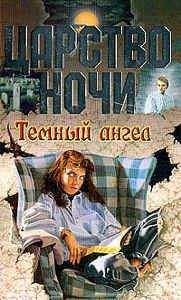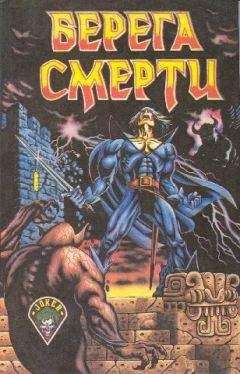Майкл Муркок - Английский язык с М. Муркоком
`By the Dog (/клянусь/ Псом), he said, `you have become hugely ugly, Vadhagh (ты стал очень безобразным; hugely — весьма, очень, исключительно).
`We make a fine pair, then, Mabden (тогда мы — два сапога пара: «составляем прекрасную пару», мабден), for you have changed not at all (так как ты ничуть не изменился).
Glandyth sneered (Гландит насмешливо улыбнулся).
unhealthy [ʌnˈhelƟɪ] hugely [ˈhju:ʤlɪ] pair [peə]
The sea slapped against the rocks of the causeway. Sometimes a seabird cried out. There was no sound from the warriors of either side. Both defenders and attackers watched tensely as the two approached each other and then, in the middle, stopped. About ten feet separated them.
Corum saw that Glandyth had grown a little thinner. But the pale, grey eyes still contained that strange, unnatural glint and the face was just as red and unhealthy as the last time Corum had seen it. He held his war-axe down in front of him, in his two hands, his helmeted head on one side.
`By the Dog, he said, `you have become hugely ugly, Vadhagh.
`We make a fine pair, then, Mabden, for you have changed not at all.
Glandyth sneered.
`And you are hung all about with pretty shells, I see (а ты весь обвешан прелестными ракушками, я вижу), like some Sea God`s daughter going to be wed to her fishy husband (словно дочка морского бога = морская царевна, собирающаяся замуж за своего рыбьего мужа; to wed — жениться, выходить замуж). Well, you may become their nuptial feast when I throw your body into the sea (что ж, ты можешь стать их свадебным пиром, когда я сброшу твое тело в море).
Corum wearied of these heavy insults (Коруму надоели эти неуклюжие оскорбления; to weary — утомлять, уставать от, надоедать; heavy — тяжелый, неуклюжий; тупой, скучный). He leapt forward and swung his great broadsword at Glandyth (он прыгнул вперед и ударил своим огромным палашом Гландита; to swing at — ударять по чему-либо, кому-либо; to swing — качать/ся/, колебать/ся/; размахивать) who brought his metal-shod axe haft up swiftly and blocked the blow, staggering a little (который поднял быстро окованную металлом рукоять топора вверх и блокировал удар, пошатнувшись слегка; to bring; to shoe — обувать; подковывать, оковывать). He kept his axe in his right hand and drew his long knife (он держал топор в правой руке, /а левой/ вытащил длинный нож), dropped to a crouch and aimed the axe at Corum's knees (резко нагнулся, целясь топором в колени Корума; to drop — падать, резко опускаться; crouch — припадание /к земле/, нагибание).
nuptial [ˈnaps (ə) l] wearied [ˈwɪərɪd] knife [naɪf] crouch [krauʧ] knee [ni:]
`And you are hung all about with pretty shells, I see, like some Sea God`s daughter going to be wed to her fishy husband. Well, you may become their nuptial feast when I throw your body into the sea.
Corum wearied of these heavy insults. He leapt forward and swung his great broadsword at Glandyth who brought his metal-shod axe haft up swiftly and blocked the blow, staggering a little. He kept his axe in his right hand and drew his long knife, dropped to a crouch and aimed the axe at Corum's knees.
Corum jumped high and the axe blade whistled under his feet (Корум подпрыгнул высоко, и лезвие топора просвистело под его ногами). He stabbed out at Glandyth and the blade scraped the Mabden's shoulder plate but did not harm him (он нанес удар Гландиту и лезвие /палаша/ задело наплечную пластину мабдена, но не нанесло вреда ему; to stab at — наносить удар /колющим оружием/, закалывать; to scrape — скоблить, скрести; задевать, касаться). None the less Glandyth cursed and tried the same trick again (тем не менее, Гландит выругался и попытался /проделать/ ту же уловку снова). Again Corum jumped and the axe missed him (и снова Корум подпрыгнул, и топор прошел мимо него). Glandyth sprang back and brought the axe down on the crabshell shield (Гландит отскочил назад и опустил топор на = с силой ударил по щиту из панциря краба) which creaked with the strain of the blow, but did not shatter (который треснуть под тяжестью удара, но не разбился вдребезги; to creak — скрипеть; треснуть; strain — напряжение, нагрузка), though Corum's arm was numb from wrist to shoulder (хотя рука Корума онемела от запястья до плеча; numb — онемелый, оцепенелый). He retaliated with an overarm blow which Glandyth blocked (он ответил верхним /рубящим/ ударом, который Гландит блокировал; overarm — верхний удар; с рукой, поднятой над головой).
Corum kicked out at Glandyth's legs, hoping to knock him off balance (Корум ударил Гландита по ногам, надеясь лишить его равновесия; to kick — ударять ногой, пинать; to knock — ударять/ся/, бить; off balance — потерявший равновесие, неустойчивый), but the Mabden ran backwards several paces before standing his ground again (но мабден отбежал назад на несколько шагов, прежде, чем снова встал в стойку; to stand one`s ground — стоять на своем, проявлять твердость).
shield [ʃi:ld] numb [nʌm] retaliated [rɪˈtælɪeɪt] balance [ˈbæləns]
Corum jumped high and the axe blade whistled under his feet. He stabbed out at Glandyth and the blade scraped the Mabden's shoulder plate but did not harm him. None the less Glandyth cursed and tried the same trick again. Again Corum jumped and the axe missed him. Glandyth sprang back and brought the axe down on the crabshell shield which creaked with the strain of the blow, but did not shatter, though Corum's arm was numb from wrist to shoulder. He retaliated with an overarm blow which Glandyth blocked.
Corum kicked out at Glandyth's legs, hoping to knock him off balance, but the Mabden ran backwards several paces before standing his ground again.
Corum advanced cautiously towards him (Корум осторожно приближался к нему).
Then Glandyth cried out (потом Гландит крикнул):
`I'm tired of this (мне надоело это). We have him now (теперь он наш). Archers — shoot (лучники — стреляйте)!
And then Corum saw the charioteers who had moved quietly down to the forefront of the ranks (затем Корум увидел возничих, которые тихо двигались на переднюю линию = выдвигались вперед рядов /мабденов/) and were aiming their bows at him (и целились из луков в него). He raised his shield to protect himself against their arrows (он поднял щит, чтобы защититься от их стрел).
Glandyth was running back down the causeway (Гландит бежал назад по дамбе).
Corum had been betrayed (Корума предали; to betray — предавать, изменять; обманывать). There was still an hour before the tide came in (был по-прежнему еще один час, прежде чем наступит прилив). It seemed he was going to die for nothing (видимо, он умрет ни за что = смерть его будет напрасной; to be going to — собираться /сделать что-либо/; означает предположение или предсказание относительно будущего).
cautiously [ˈkɔ:ʃəslɪ] arrow [ˈærəu] betrayed [bɪˈtreɪd]
Corum advanced cautiously towards him.
Then Glandyth cried out:
`I'm tired of this. We have him now. Archers — shoot!
And then Corum saw the charioteers who had moved quietly down to the forefront of the ranks and were aiming their bows at him. He raised his shield to protect himself against their arrows.
Glandyth was running back down the causeway.
Corum had been betrayed. There was still an hour before the tide came in. It seemed he was going to die for nothing.
Now another shout, this time from the castle's battlements, and a wave of arrows swept down (но вот /раздался/ другой крик, на этот раз со стен замка, и волна стрел обрушилась вниз; to sweep down — падать камнем, устремляться вниз). Beldan's archers had shot first (лучники Белдана выстрелили первыми).
The Denledhyssi arrows rattled on Corum's shield and against his greaves (стрелы денледисси стучали по щиту Корума, отскакивали от ножных лат). He felt something bite into his leg just above the knee, where he had scant protection (он почувствовал, как что-то впилось в его ногу как раз выше колена, где почти не было защиты; scant — скудный, недостаточный). He looked down (он посмотрел вниз). It was an arrow. It had passed completely through his leg and now half of it stuck out behind his knee (она прошла полностью через его ногу и теперь половина ее торчала позади колена; to stick out). He tried to stumble backwards, but it was hard to run with the arrow in him (он попытался идти, спотыкаясь, назад /к замку/, но было трудно бежать со стрелой в нем = в ноге). To pull it out with his only hand would mean he would have to drop his sword (вытащить ее единственной рукой означало, что ему придется бросить свой меч). He glanced towards the shore (он быстро глянул на берег).



